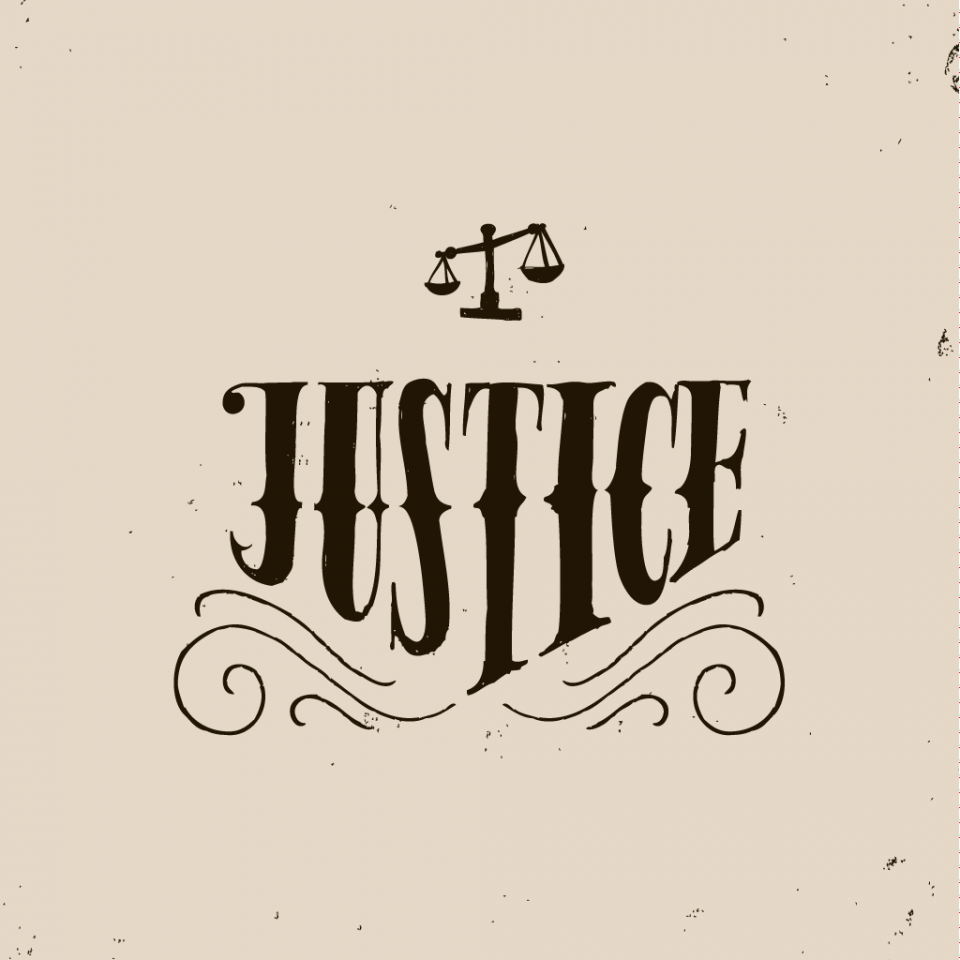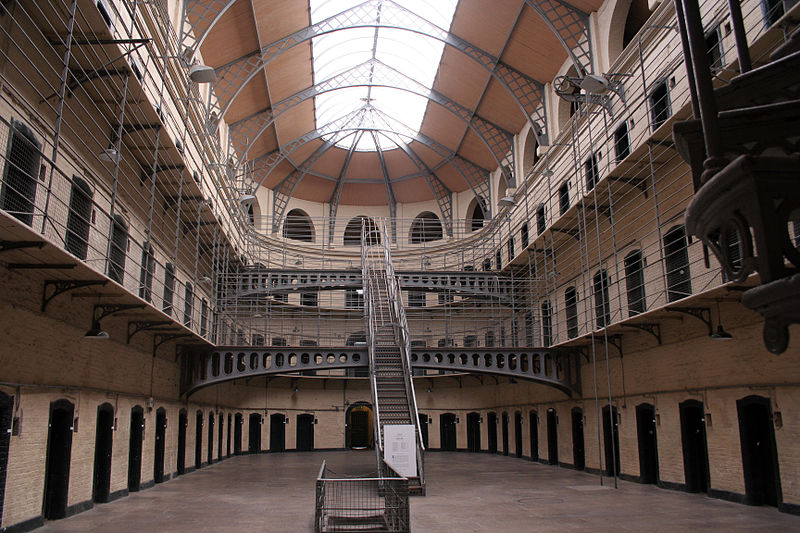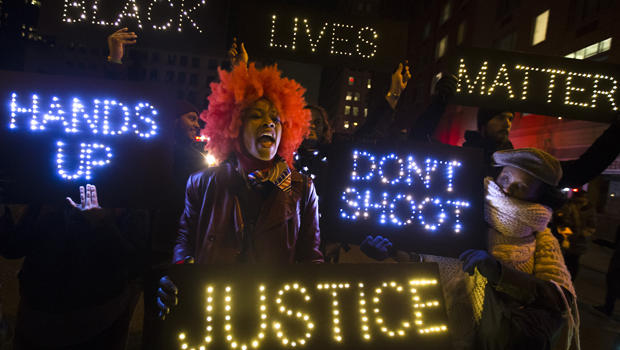
Justice is one of the great aspirational, universal values, meaning of course, that it is also infinitely malleable. Notions of justice have ancient roots, often religious but also secular, and usually framed as part of a broader ethical framework. Variations abound – cultural, historic, ideological – but justice is more often than not equated with fairness, equality and the absence of unfulfilled needs. Yet contemporary notions of justice almost inevitably overlap with law, in terms of both process and content. Justice is implicated in both negative and positive guises – law is the site where injustices are ostensibly remedied as well as the repository for justice guarantees, primarily through constitutional, civil and human rights instruments.
Communitarian and antiauthoritarian traditions resonate deeply with foundational approaches to justice and often add a crucial focus on collectivity and interdependence through notions such as solidarity, mutual aid and cooperative action. Kropotkin argued that social organization is based upon notions of “equity, mutual aid, and mutual support – of common law, in a word.” Radical approaches to justice can help revive – and even expand – the ethical and moral ideals underpinning ancient precepts of equity, generosity and truth in our relationships with one another. In other words, there appears to be a core of justice, as an ideal, a goal or as a good seen mainly through its absence, that progressive organizers and activists ought to claim as our own. In the North American context however, that core is often coopted by the legal system and/or hidden by the cozy relationship between dominant paradigms of justice and the tenets of liberalism.
At the heart of liberal thought lies a preoccupation with individual rights and freedoms from which flows a legal framework prioritizing private property, electoral democracy, market relations and formal equality. Formal, as opposed to substantive equality, rests on the notion of equal treatment or anti-discrimination (treating like alike). But equal treatment isn’t necessarily just (e.g. denying all workers paid sick leave), nor does it take into consideration the fact that we don’t all start off from the same position – the playing field is not an even one. Substantive equality, on the other hand, looks to both root causes and consequences, and recognizes that justice often means treating different people differently (e.g. recognizing that differently abled people may need specific accommodations in a workplace or school).
In addition to identifying the often taken-for-granted ideological bases of liberalism, we must also recognize that current approaches to justice are mediated through the historical lenses of colonialism, conquest and slavery. Throughout North America, the consequences of these legacies linger, despite the advent of ‘color blind’ laws. In The New Jim Crow, Michelle Alexander argues that the criminal justice system facilitates the same sort of discrimination race-based laws once did, resulting in a lawful “caste system” marked by racialized disenfranchisement and stigmatization, far beyond any prison gates. Similar patterns of exclusion, deprivation and marginalization persist in Indigenous communities, poverty and environmental injustice often marking the boundaries of legally sanctioned zones of ‘self-government’ and sovereignty.

It is not surprising, therefore, that progressive critiques of justice often hone in on the state, and especially the criminal justice system and prison industrial complex, as sites of injustice. From the very definition of what constitutes a criminal offense (and which offenses get prosecuted) to the enormous disparities in prosecution, imprisonment, and sentencing in terms of race, class, immigration status and gender identity, the politics of crime must be recognized as both a focal point of struggle and the current iteration of colonial and slave-era legacies. In this context, Alexander’s observation that the “United States imprisons a larger percentage of its Black population than South Africa did at the height of apartheid” takes on a renewed salience, countering any lingering ideals of “blind justice” while suggesting avenues for organizing that go beyond ‘reform,’ such as prison abolition.
But the state also mediates the complex legal framework of wealth distribution: taxation, corporate and business law, welfare rules, banking and financial regulations, laws determining inheritance rights, and health care entitlements. Dean Spade, a trans activist and law professor, identifies the myriad arms of the administrative state as the site of the distribution of “life chances:” education, health care, housing, ID documents, employment, access to public facilities. He argues that these commonplace, seemingly discreet injustices perpetuate the exclusion and oppression of trans and gender-variant people yet remain untouched by rights-based law reform strategies aimed at hate crime and anti-discrimination law. Similarly, despite the huge gains of early Civil Rights movements, social justice struggles relying on law-focused tactics – especially litigation and rights claims – invariably run up against the limits of law to challenge foundational rules governing access to power and wealth.

Not that movements which choose not to engage the law are not also the target of law enforcement; quite the opposite, in fact. Recent mobilizations in North America and Europe have been the subject of targeted, predictable and often frustratingly successful legal restrictions, suggesting that states continue to react in kind when faced with consistent and principled opposition. The criminalization of dissent has taken on increasingly repressive methods since the late 1990s, shifting from mass arrests of demonstrators (although this tactic remains a police favorite), to more focused prosecutions of perceived movement leaders and the use of grand juries and other investigatory techniques. These sorts of law enforcement tactics have been collectively labeled as a ‘green scare,’ signaling a historical link to the persecution of (alleged) Communists during the Cold War (the ‘red scare’). Yet criminalization of activists and activism – current and historic – should not be seen as exceptional. The lawful yet repressive array of state action leveled against organizers mostly mirrors the day-to-day experience of law enforcement in racialized, impoverished and marginalized communities.
However, injustice does not only flow from state action. The actions of corporations – both direct and indirect – are often rightly targeted by activists of all sorts. The legal framework of corporate personhood, particularly in the context of a globalized capitalist economy, catalyzes the often lawful exploitation of workers, communities and the environment as well as the overall commodification of social life. Injustice also flows from the same institutions often valorized in classic formulations of justice: religious authorities, the family, schools and other sites of social life where unequal distribution of power and opportunity can overwhelm equitable intentions.
That justice remains elusive, and its history contested, should not dissuade radicals; justice must lie at the heart of emancipatory politics, as both an ultimate end and as an organizing principle. As a foundation for our work in terms of practice/process as well as substance, justice is a mode of resistance. Wendy Brown, for example, argued that Occupy Wall Street “managed in spirit, analysis and conduct to substitute justice talk for interest talk” and that it did so when the language of justice seemed nearly extinguished by a neoliberal rationality that refracts all conduct through an individualized metric of human capital rather than intrinsic value. David Graeber, also reflecting on OWS, highlighted the Occupiers’ refusal to accept the legitimacy of the existing legal order as a demonstration of the movement’s anarchist roots. OWS “knowingly ignored local ordinances that insisted that any gathering of more than 12 people in a public park is illegal without police permission – simply on the grounds that such laws should not exist.” We chose, says Graeber, to occupy parks on the grounds that, as the public, we should not need permission to occupy public space: “This might have been a very minor form of civil disobedience but it was crucial that we began with a commitment to answer only to a moral order, not a legal one.”
In invoking a morality-based conception of justice, Graeber demonstrates the ability of movements and activists to articulate and enact principled relationships with law and the state. The act of refusing to ask for access to that which already belongs to us is a simultaneous taking of political space, one that does not rely on rights claims or their enforcement by the existing legal order. Avoiding the language and framework of rights allows movements and organizations to avoid many of rights’ wrongs: a focus on individual, rather than collective, grievances; the privileging of negative rights violated by state intrusion rather than positive claims for redistribution; and the artificial bifurcation of economic, political and legal realms. Reliance on constitutional and/or international human rights in political struggles often results in atomization, demobilization and a tendency to funnel activism away from the streets and into the courts. This is not to suggest that rights never have tactical utility or that recognition as rights bearers holds no value for those formerly denied legal standing. It may be possible – or even desirable – to embrace liberalism tactically, with an eye to long term radical strategy. Yet we risk ceding the terrain of struggle when we choose to engage with the judicial system on its own terms, expecting the existing legal order to enforce our rights claims. Particularly in those cases where we seek permits, injunctions and/or restraining orders to defend spaces we have already claimed as our own, we inevitably face the prospect that a post-injunction eviction will be not only lawful but legitimate.
Navigating our political relationship with rights forces us to confront the complexity of working for and with justice. In communities and movements with access to radical lawyers and legal workers experienced in activist defense work, we can all work together to balance our need to learn about and engage with law and the state with our desire to challenge lingering liberalism and problematic responses to state repression within and by movements. For example, we can seek to build on the crises that follows arrests, grand jury summonses or other repression by focusing on movement building and mobilizing new activists, seizing the opportunity to both reflect on and educate about justice and develop our capacity for mutual aid through court and jail support and other material expressions of solidarity. Such moments expose the contradictions of striving for justice in a deeply unjust world, but seeing our goals of equality and freedom co-opted or criminalized should only underscore the need to commit to working for justice beyond the existing legal order.
As a result, organizing against injustice also opens up space to consider the possibilities of what justice could be. In tying together practical needs and theoretical aspirations, justice is a prefigurative project. Karl Klare: “critical legal thought forces attention upon the need to conceive and anticipate, however rudimentarily, the institutional forms for political expression, collective decision-making, resource allocation, and dispute resolution which will someday constitute a free and democratic society.” The elements of justice that arise in our everyday lives and activist work – safety, fair treatment, security (in its broadest term), accountability, redress for grievances, equality, conflict resolution, etc. – are also the seeds of self-governance. Exploring and developing such mechanisms necessarily requires a commitment to equality in the deepest sense, privileging opportunity, participation and difference as collective values rather than individual rewards. By making the decision to confront the challenges of reclaiming justice as a practice and a purpose in the current moment, we are forced to consider how to fairly balance individual desires and collective needs, how to redefine equality, autonomy and responsibility and how to do so without resort to force, external authorities or the institutions of the existing legal order. Living our lives confronting the injustice of police, courts, the state, and beyond also means learning how we will live without them.
Irina Ceric is an activist, radical lawyer and critical legal scholar, with over fifteen years’ experience in movement defense and activist legal support. Newly based in Vancouver (Unceded Coast Salish Territories), she teaches criminology at Kwantlen Polytechnic University.
The current print edition of Perspectives on Anarchist Theory (N. 28) is on the theme of justice, featuring essays on topics ranging from accountability processes in radical communities and confronting domestic violence without involving the state, to working for a world without the prison industrial complex and the tactic of hunger strikes amidst the “War on Terror.”
Get a copy from AK Press: http://www.akpress.org/perspectivesonanarchisttheorymagazine.html
